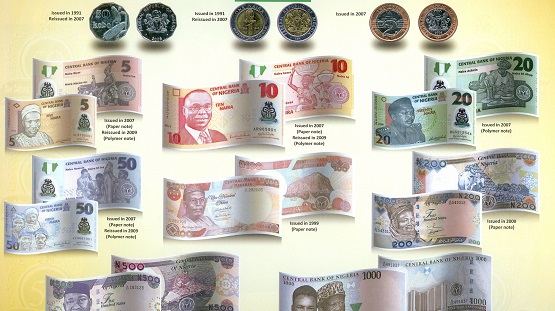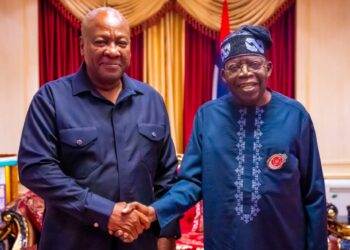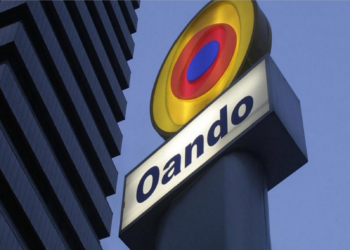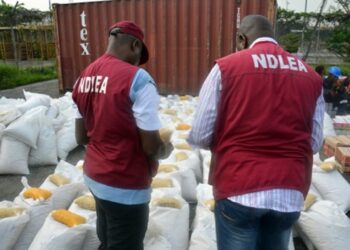The post below is derived from a tweet storm by Ugodre via his twitter handle @ugodre. The tweet represents his views on the three policies available to the CBN to address the depreciation of the naira at the black market as well as bridging the gap between the official rate and parallel market rates. Following popular request the series of tweets shared to his followers is posted below for those who may have missed it or those who want to them for reference.
- Nigeria is facing a major currency crisis caused by the drop in oil prices and our inability to diversify the revenue base of our economy
- From about $38b a year ago we have about $28b in foreign reserves which is probably below $20b if you net off currency swaps
- But it’s not really just reserves. At $28b its more than what Argentina, Portugal, Belgium Finland each has. South Africa has about $46b in reserves yet it still faces its fair share of currency crisis.
- The major problem we have is that this country is heavily reliant on import. It’s an addiction that has one solution NIGERIA NEEDS TO STOP IT’S OVER RELIANCE ON OIL FOR FUNDING ITS DOLLAR CRAVINGS
- However, it’s a long-term solution and will require decisions of constitutional proportions. The type that can tear a country apart
- For now we are left we three other alternatives that prolongs the pain rather than quench it.
- Think of it this way…all 3 options are painful but with different degree of hurt. How long it hurts depends on how quickly you get cured
- The alternatives are no solutions. They however provide a painful pathway to a cure. So let’s get to the alternatives
- The CBN (Govt actually) can either decide to a) Devalue b) Float the exchange rate or c) Demand side management (currently in operation).
- I will delve into all three options with a focus on the major pros and cons. Stay the course with me
- Devaluation is an option proposed by a lot of economists who believe the naira should trade relatively closer to d parallel market rate. They believe allowing a rate disparity encourages arbitrage which further encourages round tripping and erodes our reserves
- Unfortunately we have been devaluing since the days of SAP and yet the official rate always lags the parallel rate. Only once have in the last two decades have we had the official rate trading at as low as N2 discount to the parallel market rate and that was during Soludo’s era. Nevertheless it wasn’t to last as the world-wide economic crisis scuttled his Utopian plans. Devaluation is a subjective policy that is anti market and mostly occurs in countries that aren’t brave enough to diversify their income base
- The CBN has preferred this option because it gives them control over the price of the exchange rate. Our government loves to control everything. Electricity rates, fuel prices, water rates, etc.
- But devaluation will NOT WORK. It’s never been a reasonable solution to our currency woes. It only makes our leaders lazy. At what point do you stop devaluing? Devaluation is basically the government manipulating currency prices artificially just to push back demand artificially. In Nigeria, government revenue earned in dollars can double by fiat just by devaluing. Unfortunately, the government gains and the private sector mostly suffers.
- This takes us next to floating the currency. When you float the currency the market determines the price and not Buhari
- It’s like the stock market. If the CBN decides to sell stocks today, it will have to sell at the market price or hold. By floating the CBN allows market forces determine prices. Like everyone else It places a bid and hopes an offer matches that bid.
- If it floats today the official price will probably jump to N260 because that my friends is what u and I pay when we use our debit cards. When you get Western Union you will be paid at a rate of N260 and not the N200 rogue banks pay. You have a single price for all.
- The CBN will also sell dollars at that price and also buy at that price. Everyone is happy right? Not exactly
- Whilst floating solves the problem of a dual pricing and arbitrage it doesn’t take away demand and doesn’t bridge the supply gap. For e.g you may still not have dollars to pay for your children’s school fees.
- Demand may wane initially and supply might increase temporarily but it will be short-lived. Eventually demand will outstrip supply as those who had given up on dollars will come back to buy while those who have will hoard
- This will increase the exchange rate and some predict it could hit N350. The impact will be catastrophic. Make no mistakes about it
- Companies will go bust and people will lose jobs. Valuations will plummet and accounting profits will decline.
- Local businesses will be bought over on a cheap by foreign investors & our local competitiveness will take a hit. Confidence will drop
- Inflation will skyrocket and the price of fuel will likely cross N120. People will flee the Naira and dormant accounts will be the new Oil
- It’s the kind of catastrophe that can cause social unrest and hatred for the govt. Floating is a risk only a brave President can take. GEJ took a similar risk (subsidy) in 2012 and we all know how he recovered from it
- Floating is brutal and painful, nonetheless it’s my preferred option. I support it 100%
- Nigeria needs to move closer to a market determined economy. Our regulators need to regulate markets and not control markets.
- By the time iPhones cost N300k to buy our consumption loving students will think about designing their own phones.
- By floating the exchange rate the exchange rate will enter a period of price discovery where market forces determine its rate and not the CBN. The market need to wait for Buhari to decide whether to devalue or not in response to arbitrage opportunities.
- Speculators will also be reduced considerably and probably replaced by risk taker taking bets on either side of the price of the naira. With time the naira will find and equilibrium and businesses can start to hedge, plan and forecast their naira needs. Floating the naira in essence will create a new industry for the economy and could open the way for a robust financial derivatives market.
- Another advantage it brings is that the government can now focus on ensuring that Nigeria;s import dependent is capped not by fiat but by mixing smart policy decisions on the monetary side with targeted infrastructural spending on the fiscal side.
- The 3rd option is the demand side management which the CBN is currently implementing. It means using policies to stifle demand for FX
- Last Feb the CBN decided to move to a managed float system. A managed float system means the CBN allows the interbank market to source for its own dollars. However, the CBN controls the price and who it can sell to and who is eligible to buy. CBN can do this because it is the chief supplier of FX in the economy.
- By being the chief supplier of FX itself determines prices and decides who it wishes to sell its FX to. It’s everything a market is not
- Ironically they can still sell to whoever they wish to sell to in a full float. Difference is it is at the market price.
- In the law of demand and supply prices are more likely to go up if the supplier is a monopoly. Allowing it remain stable amidst rising demand means you encourage a black market
- The CBN is probably sticking to this ill-advised policy because they fixated on price control and lack the courage to convince PMB
- Imagine PMB waving the corruption card at GE and warning him not to do anything that will jeopardize d national security of this country
- To make matters worse the CBN has been poor at selling the policy of demand side management to the press. The CBN themselves appear divided on their policies. Read the last two MPC communiques to see the division inherent in their decisions
- This is the policy currently in place and going by the reaction of analysts and ordinary Nigerians, it appears to be doing everything but work. The CBN will not lift its restrictions and won’t allow flexible purchase of the greenback. Despite their ‘good intentions’, they are basically fighting a lost cause defending the naira especially in the present circumstances.
- Nigerians need to know that as a country we are at cross roads of a national renaissance. Things can only get worse if the CBN does not pivot from DSM. It is either they float the naira or continue to spend billions from our paltry reserves to defend the naira
- No matter the options that we have the implications will be wide and painful. It will however be a pain in vain if it does not end in a massive gain. Devaluation, DSM will not lead to gain, floating will.
- Take a moment and think….and then tell somebody to tell somebody to float the naira once and for all!

















Kindly note that we are already on the free float. That exactly is what the black market is all about. The black market rate is not controlled nor determined by the CBN[FGN] neither their operations.Everybody is free to continue to import/consume anything he or she likes under the sun-including sand and pure water-so long as it is made overseas. So There should not be any fuse about changing the current system. If you bid for dollar at the market and you don*t get, simply continue to raise your bid price until your demand is met. So in effect,unless and until the Black market is banned/criminalized, we are on a free-float model
Hi Eric, a free float means we have a uniform dollar price across markets. We don’t have that yet
Love your article, and shows you know your onions.
Unfortunately, the article speak about free-float, but never enumerate the steps the CBN will take to get there. I would like you to write a sequel article putting yourself as the CBN gov and step you will take to get to free-float.
In my opinion, the market is semi free float now, the part left to be free-float are the economic dependent import, this are the ones the CBN is able to support by providing a sort of “subsidy” (subsidizing dollar at a cheap rate). Removing the exchange rate peg by CBN to cut across board is the Dooms day prediction you painted for free-float. Why the analyst may have nothing to loose if you experiment with a immediate free-float of the naira, there is more to the country than economic which the got will have to protect.
The whole point of this free-float is that the country does not have enough dollar to support the imports, that has not change and will not change in free-float, what free-float can only provide is:
1) Everyone gets dollar at roughly same price. At the detriment to essential imports which will cause inflation to over 1000%.
2) the CBN earn more Naira for the dollar. But based on the govt 2016 budget, the money will be put to support the capital expenditure which are mostly dollar dependent. a zero net gain.
I hope you will address this in your sequel article..
I was making a direct response to your proposals, and again unless a price/rate is fixed by fiat,It is not possible under free float/Free-market rules to have a uniform price/rate at any given time for all participants.
Well…when we say uniform we mean you can’t have the sort of disparity we have now. There will be a price at the close of business everyday which will be bench-marked as the price of the dollar. For example, Dangote Cement may close at N165 today however during inter trade people may have bought at 164.5, 164.8, 165.1 etc. But at the end of the day we will have a closing price which will be uniform
Rightly said, the various options come with varying degrees of pains which can at best be imagined. The simply and appropriate question is what have other countries done in the past and presently and what were the outcomes?
It is my humble opinion that with demand side management and measured devaluation we can gradually tip the the import/export balance in our favour. Put in another way – let’s manipulate it (currency situation) in a way that’s favourable for our economy. Floating with the attendant social upheaval that can result particularly taking cognisance of the power and infrastructural deficit we have is too much of a risk.
The truth is bitter, but it remains the truth
Nice article. In my opinion, our policies to resolve this issue are in two phases, the first is to establish a better policy that will aid exportation from Nigeria by making it almost free to join and learn about exportation. This will help to balance our import an export ratio to a large extent as we will always import.
Two, you cannot allow black market to control the dollar anymore, because if the financial institution do not sell and we recourse to buying from black Market, then the market will continue to control our currency against the dollar. It is pathetic that even our official transactions through Naira cards are charged at black market rates by our official bandit banks, hereby telling us that banks get their $ from black market.
Black market has to be officially banned and and $ should be easily available in the open market. Until this is done, the black market will keep pushing the demand amidst floating or devaluation.